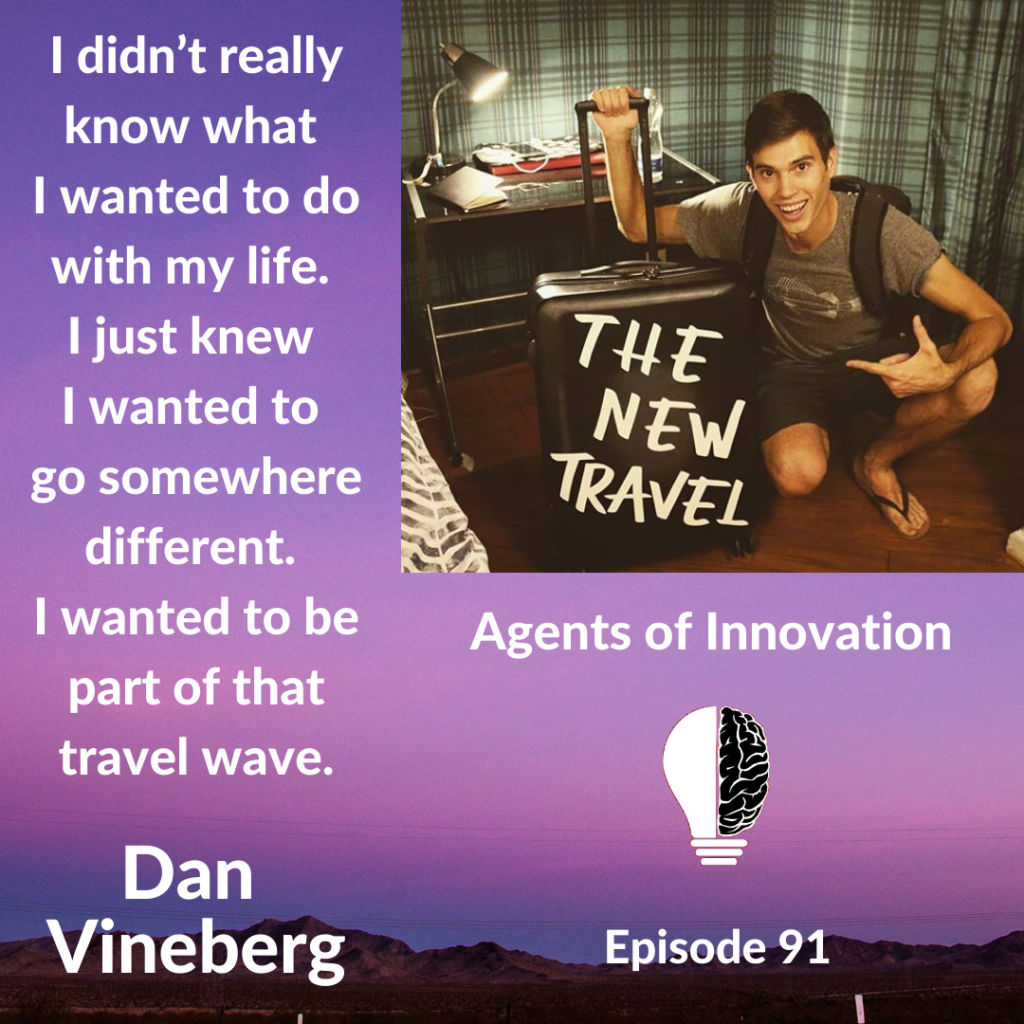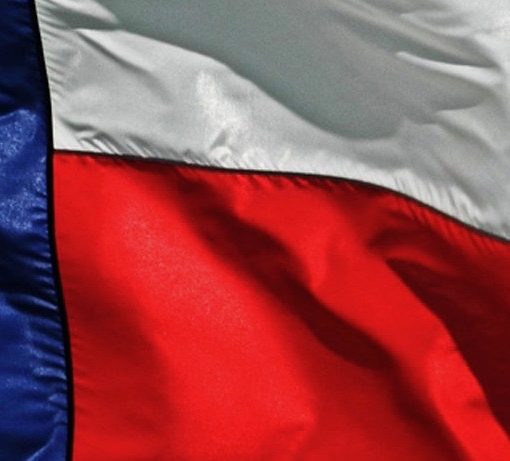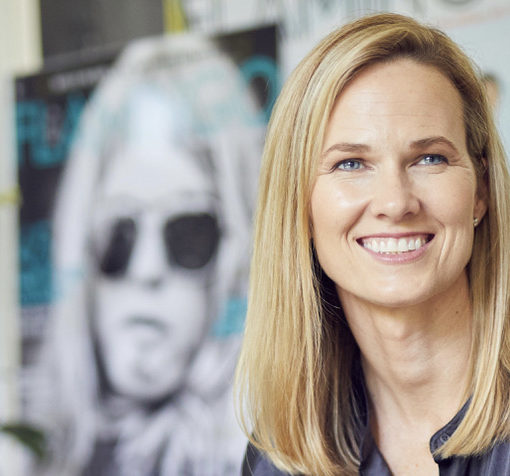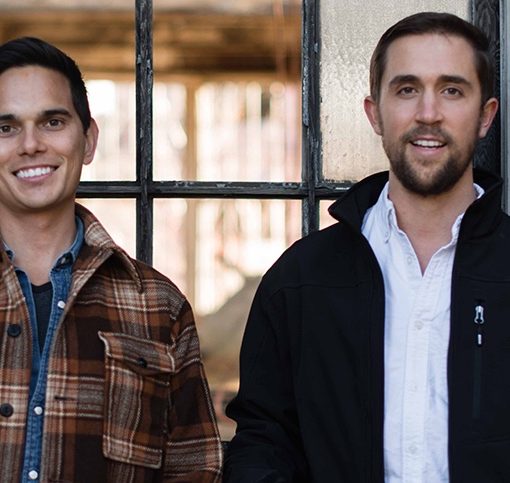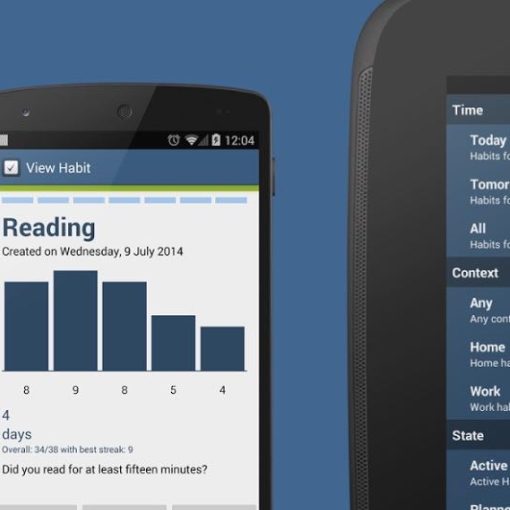Dan Vineberg was our featured guest on Episode 91 of the Agents of Innovation podcast. He is from Canada and is a traveler, writer, and filmmaker living in Montreal. Over the past five years his travel videos have been viewed over 15 million times. He also has over 149,000 subscribers to his YouTube channel, “The New Travel.”
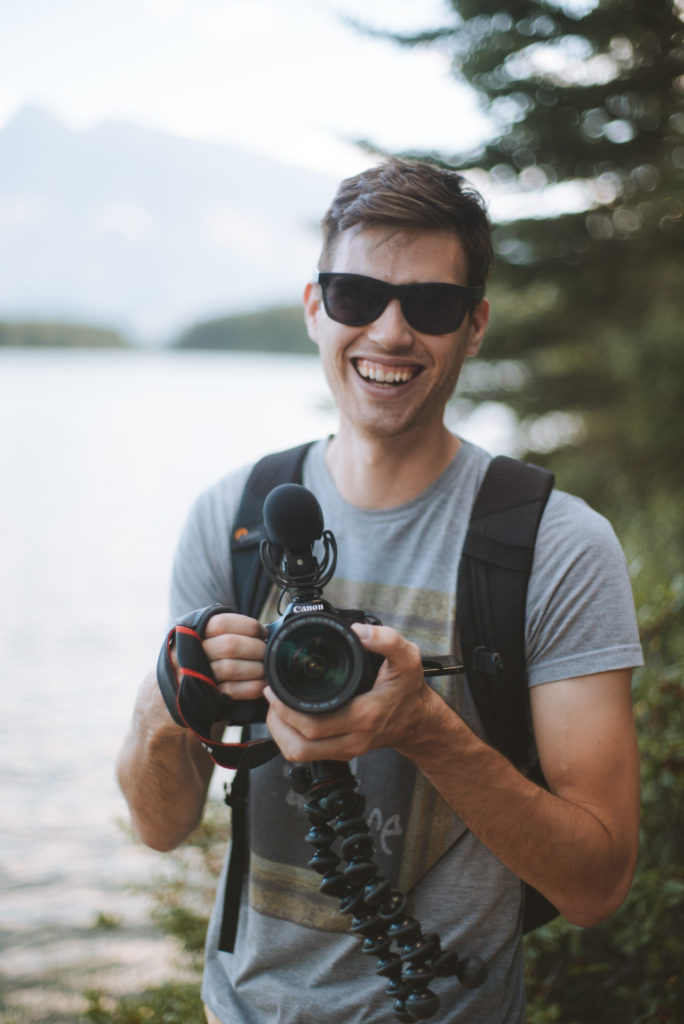
Dan has not only traveled the world extensively, he has also lived in long-term experiences in places that include South Korea, France, Costa Rica, and Mexico City.
“Part of the reason I enjoy slow travel,” said Dan, “you can arrive in a city, if you have two or three days, there’s always a quick list of things you’ll do… it’s only when you slow down and you give yourself a bit of time that you really get to feel the energy of the city.”
Early Interest in Travel
What first sparked Dan’s interest in travel?
His dad worked for Canadian immigration, so Dan said he grew up in a family, “where the idea of immigrants, and different cultures, and connecting with different people, that was a good thing,” he said. “Some people aren’t fortunate to grow up in that mindset.”
“It might seem different from travel,” he said, but if your mindset is one where you’re not comfortable with people who are different, then “you’re not so interested in going to places where people look and speak and act differently than you’re used to. Where, as for me, I was always curious, I always wanted to see these places. I had a love for that from a very young age.”
When he was a college student, Dan took a summer class that was a 6-week exchange program to Guatemala. They traveled in the country and studied the socioeconomics of Guatemala, and they lived on a coffee plantation for part of the time. “It was really a remarkable trip that opened my eyes to what travel could be like,” said Dan.
Then, after college, his first big experience living in another country was when he moved to South Korea. For over eight months, he taught English there. “I didn’t really know what I wanted to do with my life. I just knew I wanted to go somewhere different. I wanted to be part of that travel wave,” he said. “It was a pretty great gig. They paid for my flight to South Korea, they gave me a free apartment in South Korea, and then I’m there teaching English to school children and getting paid pretty decent money too.”
“For anyone who is starting out and wants to travel, I would encourage them to think about travel as maybe living in another country because even if you’re living somewhere and you’re working … it’s still traveling in a sense. Every day is still new.”
Travel Blogs to Travel Vlogs
Recounting when he went from Dan the traveler to Dan the travel vlogger, he said, in retrospect, he sometimes forgets about some of his earlier pre-vlogger travel days because “if I don’t film it, if I don’t have a record on YouTube, it’s almost like it doesn’t exist,” he said. Reflecting on this reminded him why “it’s a great reason to get into YouTube or get into some form of creative expression because it does make a very valuable memory.”
Before vlogging, Dan came from a writing background, studying creative writing in college. “Without that, I never would have become a YouTuber,” he said. During that opportunity living and working in South Korea, he didn’t initially start a travel blog because he thought, “Oh it’s been done before. What do I have to add to the conversation? I’m just another guy who doesn’t know what he’s doing with his life. Why should I have a blog?” A year later, he moved to France and decided to start a travel blog to capture the experiences.
“If I want to be a writer, I need to write,” he said. “What I learned is you develop your unique style and your unique voice through the act of doing,” said Dan. “The process of being a blogger develops you to the next level. Through that work ethic, through that process, I quickly became the writer I wanted to be in a sense.”
Writing about his travel experiences was always a hobby for him. “I had a few diehard readers which gave me the motivation to continue,” he recounts. A few years later, around 2015, he made his first YouTube video. “My first videos were to support blog posts. As I learned more about blogging, people were saying, ‘oh video can help with the SEO … if you want to get your blogs read, video can help with it.’”
So, he started creating more videos and embedding them into his blog posts. “Then the videos started getting more views than the blog posts, and also the videos were in some sense more fun to make.”
With writing, he always struggled to find the balance between what he wanted to write about and what was getting more traction. “With video I sort of did whatever I wanted to and it started getting more attention, so that’s when I realized there really is something special about video.”
Becoming a YouTuber
“In 2015-2016, there was sort of a shift happening,” said Dan. “It was when Facebook video was starting to appear on the feed a lot. YouTube was sort of maturing as a platform. People were realizing you could make a show on YouTube like you can make a show on TV. It wasn’t just for funny cat videos anymore. People are developing real audiences,” he said. While he acknowledges sort of being at the right place at the right time, he also believes we are still in the early days of YouTube. “It’s just going to grow and grow and grow.”
Dan said that when he first started making videos, “my equipment was so bad.” He began with his cell phone. Then he bought a silver GoPro 3. He realized he needed to continue to upgrade to capture higher quality video.
“I’ve had quite a few cameras but the one that really got me started was a Canon G7X,” a pocket-size point and shoot, with low light and decent audio. “The problem with the GoPro approach, the audio is no good. You can go underwater, you can do some fun things, but as a podcaster of course knows, audio is just as important or even more important than the video. If you are watching a video and the video quality is off, you can forgive that. As long as it sounds ok, you’ll keep watching,” he said. “But if the audio is off … it’s really just an unpleasant experience … so, realizing that audio is actually really important was a really big stage of that journey.”
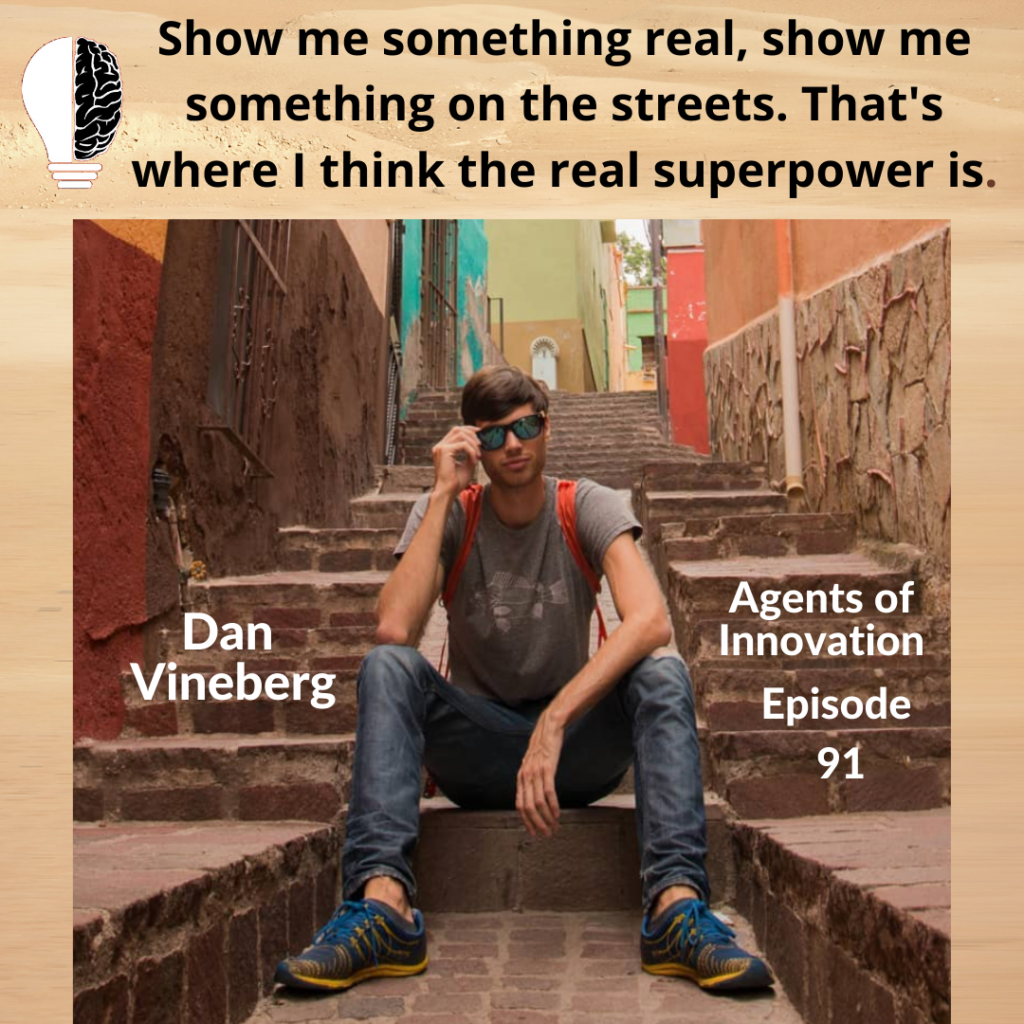
He recommends starting small because “a lot of YouTubers get lost in chasing the high quality,” he said. You know — you’re not the Travel Channel — and you shouldn’t try to be. My approach has always been you just need to be relatable; you need to be honest; you need to show places as they actually are and people will gravitate towards that energy.”
“To some extent, we are just kind of burned out on beautiful imagery. We just get shown that so many times,” said Dan. “Show me something real, show me something on the streets. That’s where I think the super power is.”
“It was a very slow beginning,” he recounted. “Your first few videos are not going to be that good … unless you have a good video editing background, you’re just not going to be that good. You need time. Reading some of the early comments, watching some of the other videos will help you develop. And just the process of doing it over and over will help you develop … don’t try to be a famous YouTuber at the beginning, because that will only send you down the wrong path.”
“It took me about a year to get my first thousand subscribers, which is pretty crazy,” said Dan. “When my channel is growing rapidly, I can get that in a week now, or even less.”
Building Two Different Audiences
For him, Mexico was the big spark where his YouTube audience really began to grow. “To some extent, a travel YouTuber is always building two different audiences. There’s the people who are traveling and then there’s the locals,” he said. “In some sense, the locals are even more important than the travelers, at least the way I’m building my brand.”
“I just want a Mexican who watches it to go: this guy gets my city. He adjusted to this place – because they know it best. If I want to be authentic, if I want to be real about what’s happening, I want to speak to the locals, I want to get them on my side,” he said. Mexico City has about 20 million people. “There’s a lot more locals than there are people visiting them. If you can tap into that energy, then you can really start to get a lot of fans, and a lot of viewership.”
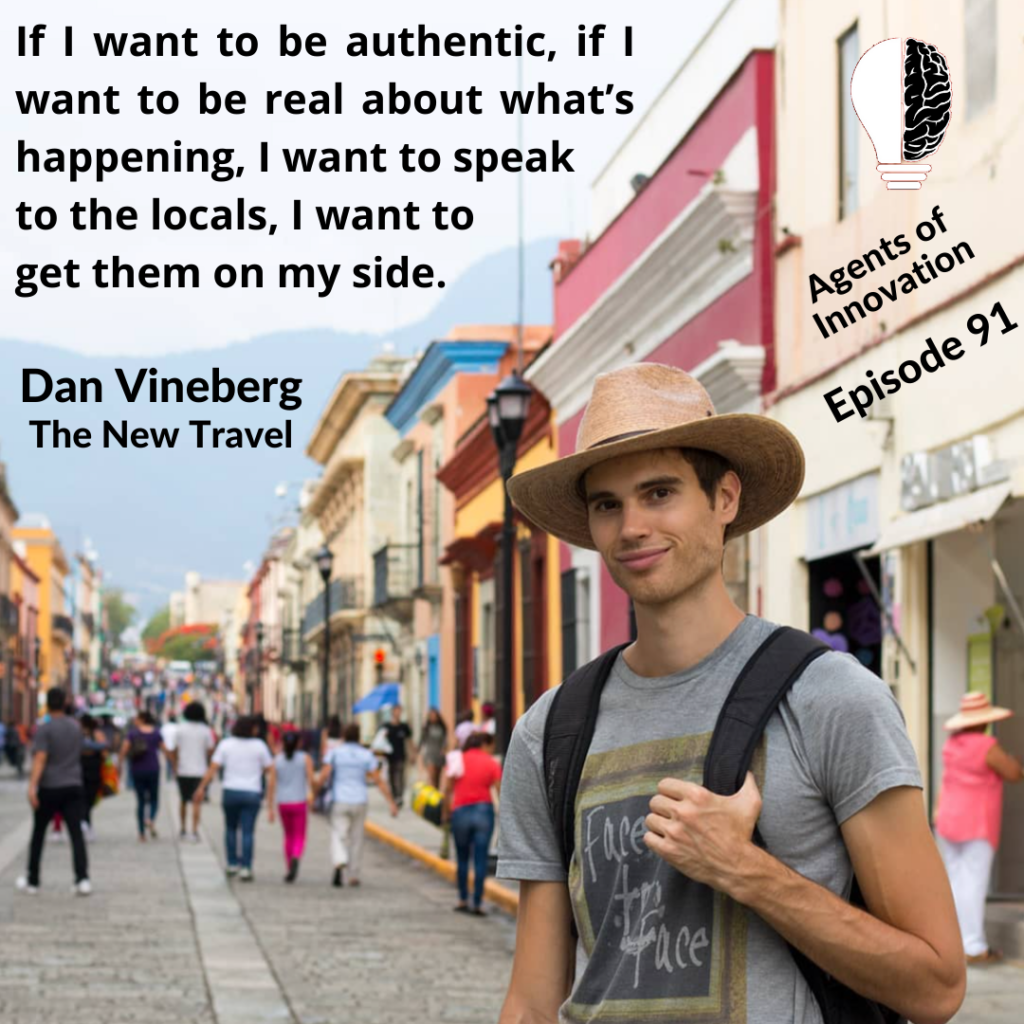
He says part of why the locals tune in is because “there’s a fascination in what people traveling from other countries think, especially in countries that have negative stereotypes associated with them.”
Dan described what he’s doing as “a new form of media. I sometimes think of what I’m doing as trying to be the opposite of the newspapers – where the newspapers are just bringing you bad news from other countries every day. I’m trying to bring you something good.”
To grow your YouTube channel, Dan said to forget about hashtags or paying for YouTube reach. Instead, it comes down to making good content and “understanding what good content is – in the context of YouTube.” He suggested making clips about a specific question a viewer might have, making creative titles, putting keywords in the short description, creating attention-getting thumbnails, and the organization of your YouTube page.
Dan described the choice a viewer makes in converting to being a subscriber of a channel as “a higher-level commitment” than following someone’s account on other social media platforms such as Instagram.
“A Traveler First”
Even though Dan is now a notable travel vlogger, where it has become his livelihood, he hasn’t strayed from his first identity as a traveler, and is not simply a YouTuber who travels.
“I’ve always tried to remain a traveler first and foremost,” said Dan. “There might have been some videos where I lost track of that. That’s a natural part of this is a business — you want to grow it,” he said. “But if you end up doing too much of that, you end up losing that special feeling that got people attracted to your channel in the first place. You end up becoming the same as everyone else … and you lose passion for it as well.”
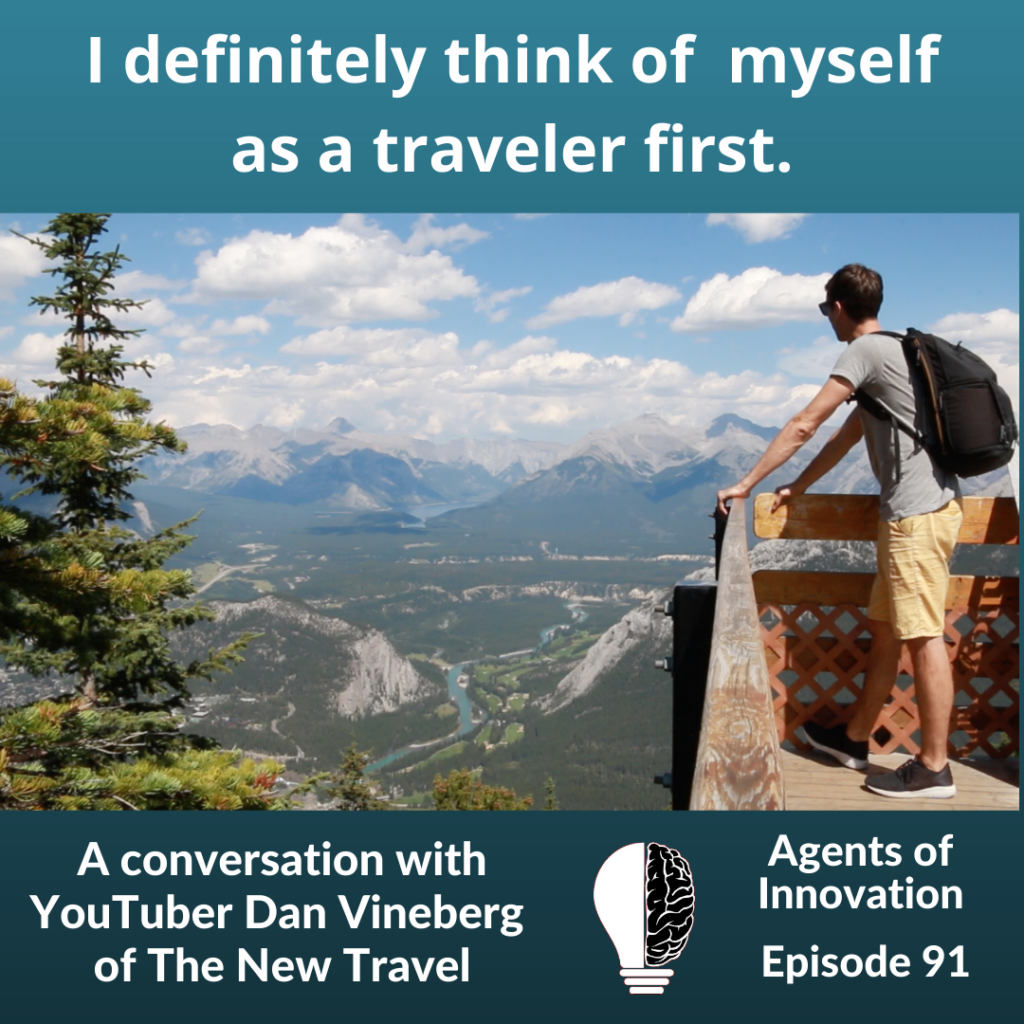
“I definitely think of myself as a traveler first,” said Dan. His advice to people who may be feeling a sense of burnout is: “just remember what got you started in the first place because that, in some sense, has to be your guiding star.”
Being a travel vlogger has been his full-time job since about 2017. One of the ways he has monetized it the most has been through YouTube ad revenue. It adds up slowly. It took him several years to even get a $100 check. But he added, “before you know it, you now have a part-time job.”
“It is a business, in the sense that it is scalable, and theoretically there is no limit.” Like any business, “it goes through up waves and down waves.” A pandemic of course can change things, especially for travel vloggers like Dan. But other things can change things too: like people’s interests and trends that change. “Things that were really popular six or seven years ago are not really popular today … as much as you want to stay true to yourself, you also have to have some sense of reality if you want to make it as a full-time YouTuber.”
Dan also has a Patreon page for those who want to support his creative content. “Patreon is a great way to get some crowd support,” he said. He also gets funding from brand partnerships, including from local tourism boards. While some of those benefits include getting his travel costs paid for, Dan also stressed that at some point, you do need to come up with appropriate rates to charge because your time is valuable.
“That was a journey for me as well, just to have the confidence to say that this ‘job’ that I just kind of fell into and was just following my passion into, it now actually is a job and I need to think of it that way and I need to put on my big boy CEO hat and think of the value I can offer.”
COVID19 Shuts Down the Travel Industry
Dan recalled when COVID19 shut down the world and he had just come back from his last trip in early March. “It was a very sad goodbye to travel; to be honest, it was tough.” For he and other travel vloggers, the early days of COVID were filled with much conflict. “Our job is to promote something that we’re being told not to do. It became a personal dilemma that me and a lot of other people had to go through.”
“I just stopped making videos for a while because I felt like I had nothing to add to the conversation but negativity,” said Dan. “My mind had gone to a dark place for a fair bit of 2020.”
“With my inability to travel, I just started checking the news too often. It just changed my mindset completely, which luckily, I’ve broken out of that trap and I don’t spend too much time even thinking about that stuff anymore. I’m just back to the things I can concern my own world: content creation and stuff like that,” said Dan. “That’s a bit of the journey I went through in 2020.”
“I Want to Reclaim This Year”
In October, Dan finally stretched his legs with his first trip and hopped on a plane to Mexico. This time, while he traveled into Mexico City, he got out of the city and spent time in a small town a few hours outside Mexico City to a “pueblo magico” called Tepoztlan. And he had a purpose: to work on writing his book. While the pandemic took away his ability to travel and create new travel videos, it did reawaken his passion for writing.
“I was pretty bummed out about the state of travel. 2020 had been the worst year of my life and I just decided I don’t really want this to be the story of 2020. I want to reclaim this year for myself and I want to change it into something else. And what I decided to do was – I’m going to write a book. I always wanted to write … but I had never given it my full go. And I never had anything to write about that passionately, but now I did. I had lived in Mexico for a year. I had experienced the travel life and I wanted to write a book about traveling and, in particular, about Mexico.”
He first started writing the book in the summer in Montreal. “It was going pretty good but, but as the months wore on, I felt like I was losing my track and I needed a spark,” he said. “And it just became so obvious suddenly, why don’t I go to Mexico?” He went to the Mexico he knew, off the beaten path, a bit more local.
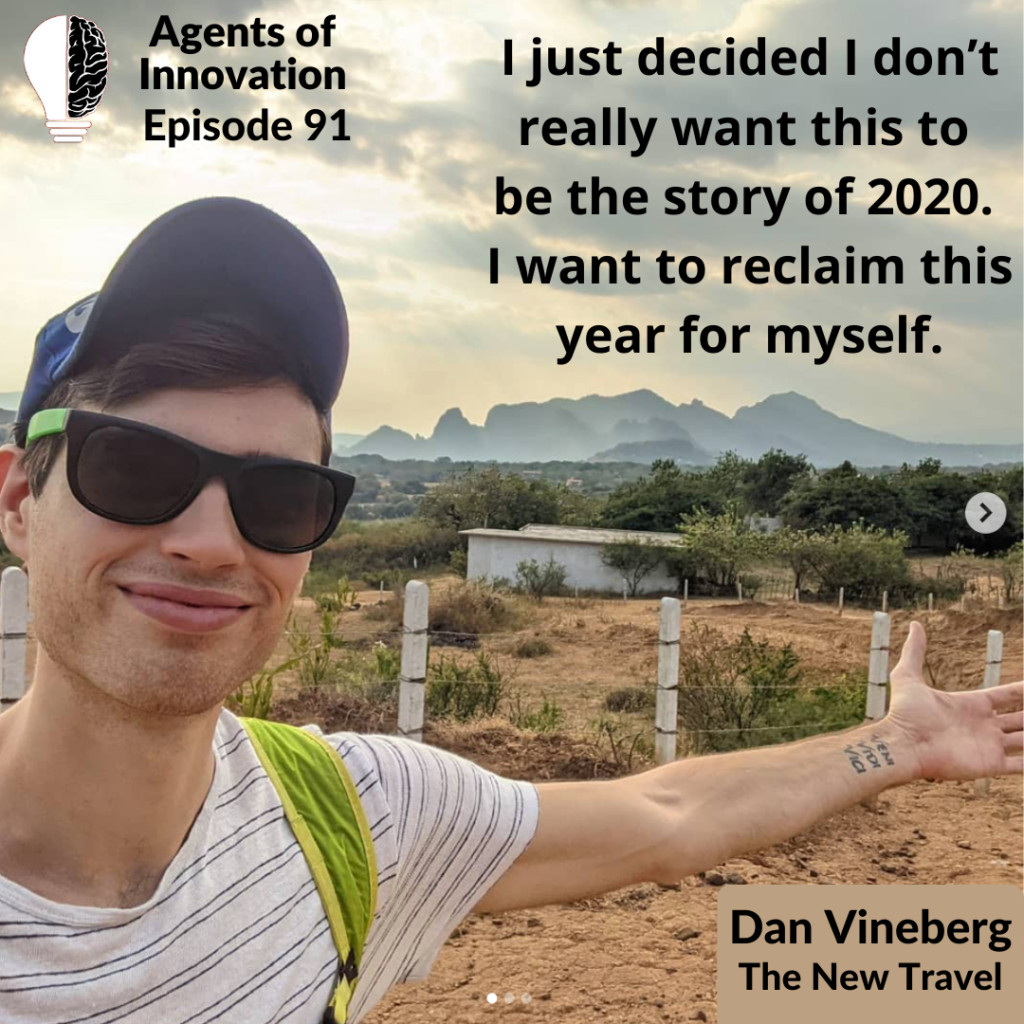
The book itself has gone through a bit of a journey. It started off autobiographical, talking about how his perception of Mexico changed after living there. Then he decided, “I want to tell a story that’s bigger than that … I want to tell a really nice story about the travel experience … about what travel means when you get away from the resorts and you get away from the luxury a bit and you get to know real people, and you get to know real experiences, because that’s where the love of travel came for me.”
The book went from the story of Dan Vineberg and has been turned into a novel. “It’s a fiction which is based on various points of my time in Mexico so people who know me will recognize things I did from videos and experiences I had, but it’s another story entirely at this point. It’s been a journey … I’m really happy with the direction it’s currently on.”
While the book is no longer a nonfiction autobiographical story, Dan reminded us that “fiction will always have parts of your life. A writer can really only write about what they know … the human experience you had is what you can put into stories and what people can relate to. If you don’t have that, you don’t have anything.”
“I’m a book lover,” said Dan. “I wouldn’t have gotten into writing if I wasn’t. In some sense the experience of traveling and the experience of reading a good book are very similar. It takes you to another world, it shows people in a new way you haven’t seen before.”
The New New Travel
“At this point, travel is in a rough place,” said Dan, reflecting on the fact that COVID19 shut down travel for most people. “Of all the industries to reopen … travel will be the last one back.”
However, he is hopeful there will be a renewed spirit for travel soon enough. “There’s nothing like real life. Everyone is starved for real interaction right now. So, when things do open up, I think they will open up in a big way. Travel will rebound in a big way,” said Dan. “We could be coming up to a golden age. People need to realize after the darkness, when it becomes light again, it’s going to be a great time for everyone.”
Reflecting on His Journey
While 2020 has been a real struggle for everyone, it has given Dan Vineberg time to reflect and talk to his audiences in new ways.
“Not a lot of people know the journey you’ve been on because a lot of new people can arrive along the way. Part of the importance is not just making new content, but reflecting and letting people know what your journey has been – because if they know where you’ve been they can know where you’re going.”
“It can really be valuable to step back and say ‘hey this is how I got started, this is the journey it’s been on, this is what it’s turning into’ – it’s valuable for other people and also just valuable for yourself just to think about it. If I didn’t spend enough time thinking – like maybe it was the pandemic – which gave me the chance to stop and think … now I’m here and now it all stopped, but is this even where I wanted to be? Did I even want to be a YouTuber or did I fall into this through writing which was always my first passion and if that’s the case, how can I make writing more of the ecosystem that I’m building here under The New Travel?”
Dan once wrote on his website that his “deepest belief is there are good people all over the world, and travel can bring us all closer together.” He added, “My life’s mission is to share this message.”
He reflected that writing his book is getting him back to “the core idea of why I started and that’s a powerful thing.”
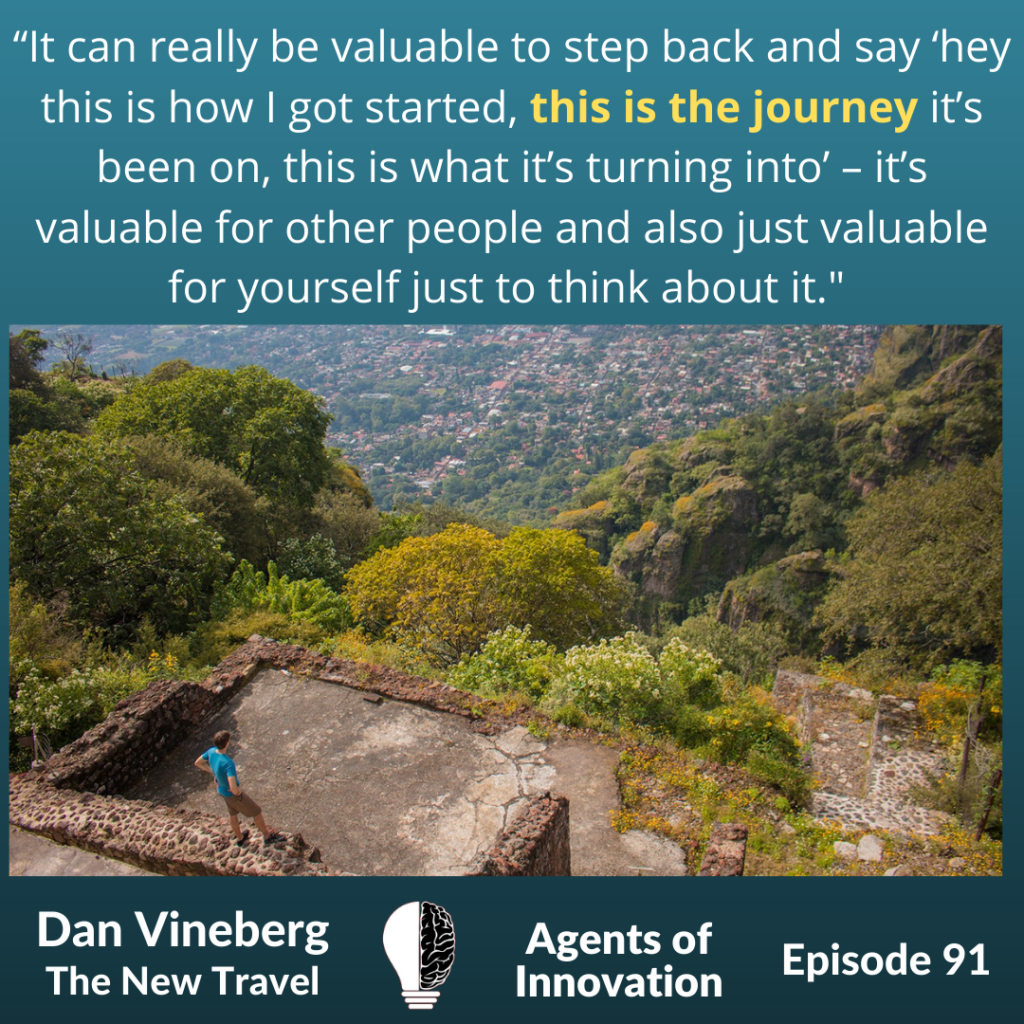
“You sometimes have to pause and ask yourself what you really want to be doing,” said Dan “ I always try to remind myself why I actually started wanting to travel or make videos or make posts in the first place and it goes back to that belief that travel is a force for good and travel will always be a force for good.”
“The more we can expose ourselves to other people and other cultures, the more we understand that we’ve been told a lie: we’ve been told the idea that most of the world is dangerous or not a good place to live … but the more you travel the more you realize there’s beautiful places everywhere… There’s places with honest people and decent people and hard-working people and everyone loves their kids and everyone loves to go watch a sports game on the weekend or call their mom or celebrate the holidays with family. The human experience is universal and I think too many voices have been trying to make us forget that simple fact. But that fact is true and if you travel with an open mind, you’ll see it.”
Dan added that when you travel, “you put yourself in other people’s shoes… That’s a little bit of why I think travel is a great thing. It teaches you compassion for other people, it broadens your horizons … it’s just the antidote to all that negativity, to all that nonsense you read in the paper sometimes.”
And for those who think you need to be rich to travel, Dan said, “There’s always a way if you really want to travel.” Perhaps with the world keeping so many of us apart in 2020, The New Travel will bring us back together again in whole new ways. We will keep following Dan’s journey because we know it is Agents of Innovation like him that will tread a path for so many of us. You can listen to the full interview with Dan Vineberg on Episode 91 of the Agents of Innovation podcast on Apple podcasts, Amazon podcasts, Spotify, Stitcher, and SoundCloud. You can also follow the podcast on Facebook, Instagram, or Twitter.
Please consider supporting the Agents of Innovation community by becoming a member of our Patreon page today, starting at just $5 a month!

